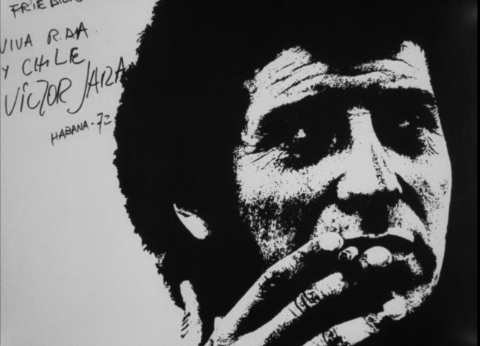Toque de queda—The Sound of Resistance in Chile
Listening Session hosted by Paul Welch Guerra, introduced by Edna Martinez
Listening Session
Mon., 11.9.2023
19:00
Pavilion (Semra Ertan Garden)
Spanish & German (no English)

Chile lebt © DEFA-Stiftung/Michael Börner
Protest music as a form of resistance in Latin America reached its peak during the 1960s and 70s as it confronted different dictatorships that arose in Colombia (1953), Paraguay (1954), Bolivia (1964), Argentina (1976), Uruguay (1973), and Ecuador (1976). It was during the 60s that a new musical movement known as Nueva canción chilena (new Chilean song) emerged in Chile. Underpinned by a strong sociopolitical consciousness, Nueva canción chilena particularly drew upon Indigenous music and instruments such as the zampoña, the quena, and the bombo. The artists and composers of this movement were associated with left-wing ideas and their lyrics asserted freedom and the denunciation of injustices. After the 1973 coup d’état in Chile and during the dictatorship that followed, many of the artists were persecuted for their political beliefs. They continued spreading music as a way to criticize and resist Pinochet’s regime despite many of the movement’s musicians and activists being persecuted and killed under his reign.
The Listening session Toque de queda—The Sound of Resistance in Chile, hosted by Paul Welch Guerra, starts from the new Chilean song movement and its resonance in other parts of the world by revisiting five decades of protest music in Chile until now. The session comprises music from social movements as well as testimonials and personal anecdotes.